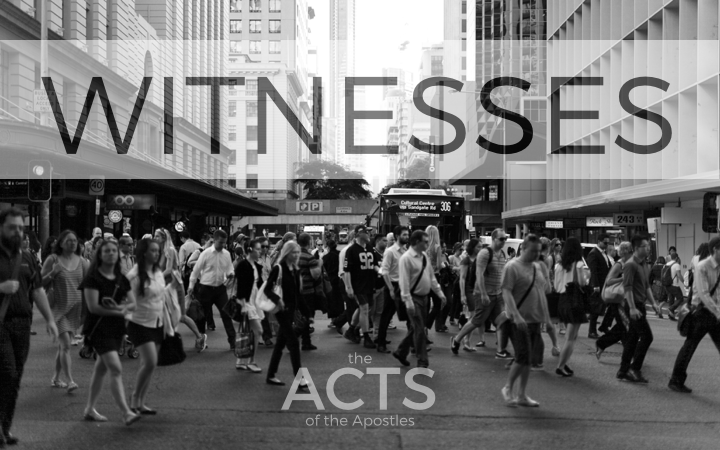Big Idea:
The passage we’ll look at next week stretches from 9:32-11:18. It finishes off the first section of Acts, and begins to turn it’s focus towards Paul’s mission to the Gentiles.
It’s God, through his Spirit that decides who are clean.
Key Verses:
10:26 – Peter is only a man. Even he doesn’t get it sometimes.
10:47-49 – The HS is given even to the Gentiles.
11:17 – If God does it, how can we oppose it?
11:18 – The expansion of God’s family.
Structure / Observations:
[ut_togglegroup]
[ut_toggle title=”9:32-43 – Peter doing the miraculous so that many believe in the Lord.”]
9:32 – Could have been those who had fled Jerusalem, of converts of Philip (8:40)
9:37 – Part of the Jewish custom of purification of the dead.
9:38 – Joppa & Lydda are about 10 miles apart.
9:42 – Peter’s an influential guy. People believe because of what he does here and in 9:35.
[/ut_toggle]
[ut_toggle title=”10:1-8 – Cornelius (a Gentile) receives an Angel.”]
10:1 – “It is remarkable that the first Gentile with whom Jesus came into touch (so far as we know) was a centurion, with reference to whose faith He said, ‘Many shall come from the east and the west, and shall sit down with Abraham and Isaac and Jacob in the kingdom of heaven’ (Mt 8:11).” FF Bruce
10:4 – The idea of “prayer & gifts to the poor” coming up to God as a memorial offering is an Old Testament picture of the smell of the sacrifices rising up to meet God, a pleasing aroma.
[/ut_toggle]
[ut_toggle title=”10:9-23a – The question: What (or who) is clean / pure?”]
10:9 – If those sent by Cornelius had set out first thing in the morning they would have arrived about noon.
10:12 – Gen 6:20 has a similar division.
10:15 – The implication of what the voice says to Peter here is that he was clearly making distinctions about what was impure and what was pure, probably in a similar way to those who confront him in 11:1-3. You can see clean / unclean laws in Leviticus 20:24-26, and Jesus declaring all foods clean in Mark 714-23.
[/ut_toggle]
[ut_toggle title=”10:23b-47 – The answer: Those whom God chooses to pour his Spirit out on.”]
10:28 – Entry into a Gentile house would render a Jew unclean (cf. Jn 18:28).
10:35 – “The early church fathers struggled with the question of faith and works in Cornelius, and perhaps Augustine’s view offers as good an answer as any. Cornelius, like Abraham, had shown himself to be a man of faith and trust in God. God was already working his grace in him, and it manifested itself in good deeds. Now God would show him his greatest grace in the gospel of Jesus Christ and the gift of the Spirit. The stress on both Cornelius’s devoutness and his works is perhaps, then, a good corrective to an abused doctrine of grace with no implications for behaviour and a reminder of James’s dictum that at base, faith and works are inseparable.” Polhill
10:41 – “The eating and drinking were very important, being among the most convincing of many proofs of His bodily resurrection. Cf. Lk 24:41,43.” FF Bruce
10:44 – So Peter might have been hesitant about coming into the house of a Gentile, but God declares unequivocally that clean / unclean is no longer about food laws or heritage. It’s about the Spirit of God. This is the Pentecost for the Gentiles.
[/ut_toggle]
[ut_toggle title=”11:1-18 – Part 1 climax: Even the Gentiles can have eternal life.”]
11:3 – We see here already, the Gospel & God’s Spirit having just been given, that false views & doctrines are already at hand. There’s nothing new under the sun.
11:3 – Peter is the leader of the early church. He not only entered a Gentile house, he ate with them. Once the unbelieving Jews in Jerusalem who were sympathetic to the believers got wind of this, it was probably going to dry up any sympathy other Jews might have had to the believers.
11:18 – “They accepted Peter’s report and made no attempt to avoid the conclusion that the Gentiles were not outside the scope of the Gospel. The resulting questions on the terms on which Jewish and Gentile believers were to associate and the obligation on Gentile believers to observe the Jewish law were not pressed at the moment, but they were by no means solved. Even Peter on a later occasion wavered in faithfulness to the lesson that he had learned on the housetop at Joppa (Gal. 2:11 ff.). The question became more acute than ever after the return of Paul and Barnabas from their first missionary journey (cf. 15:1ff.).” FF Bruce
[/ut_toggle]
[/ut_togglegroup]
Application:
Coming Soon…




